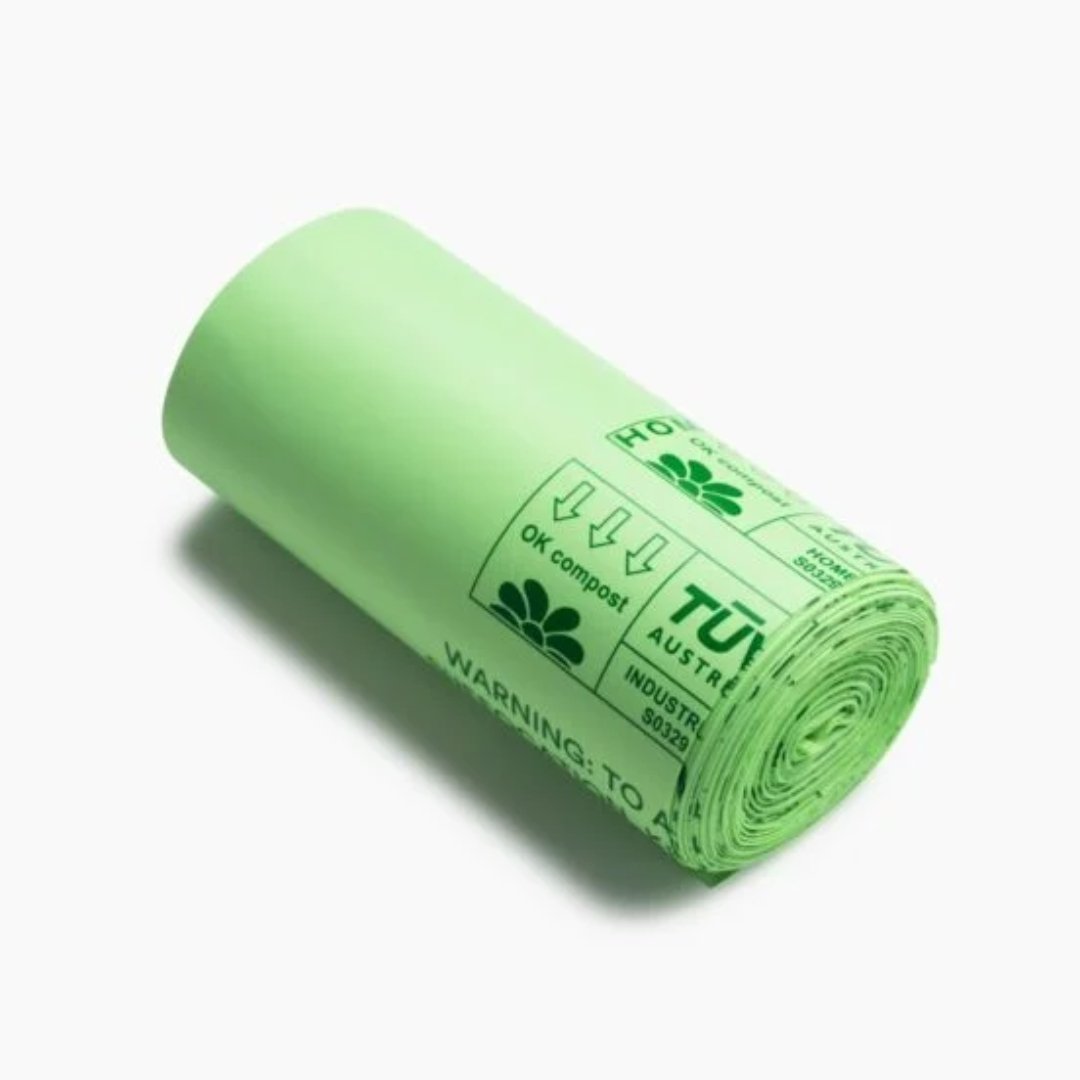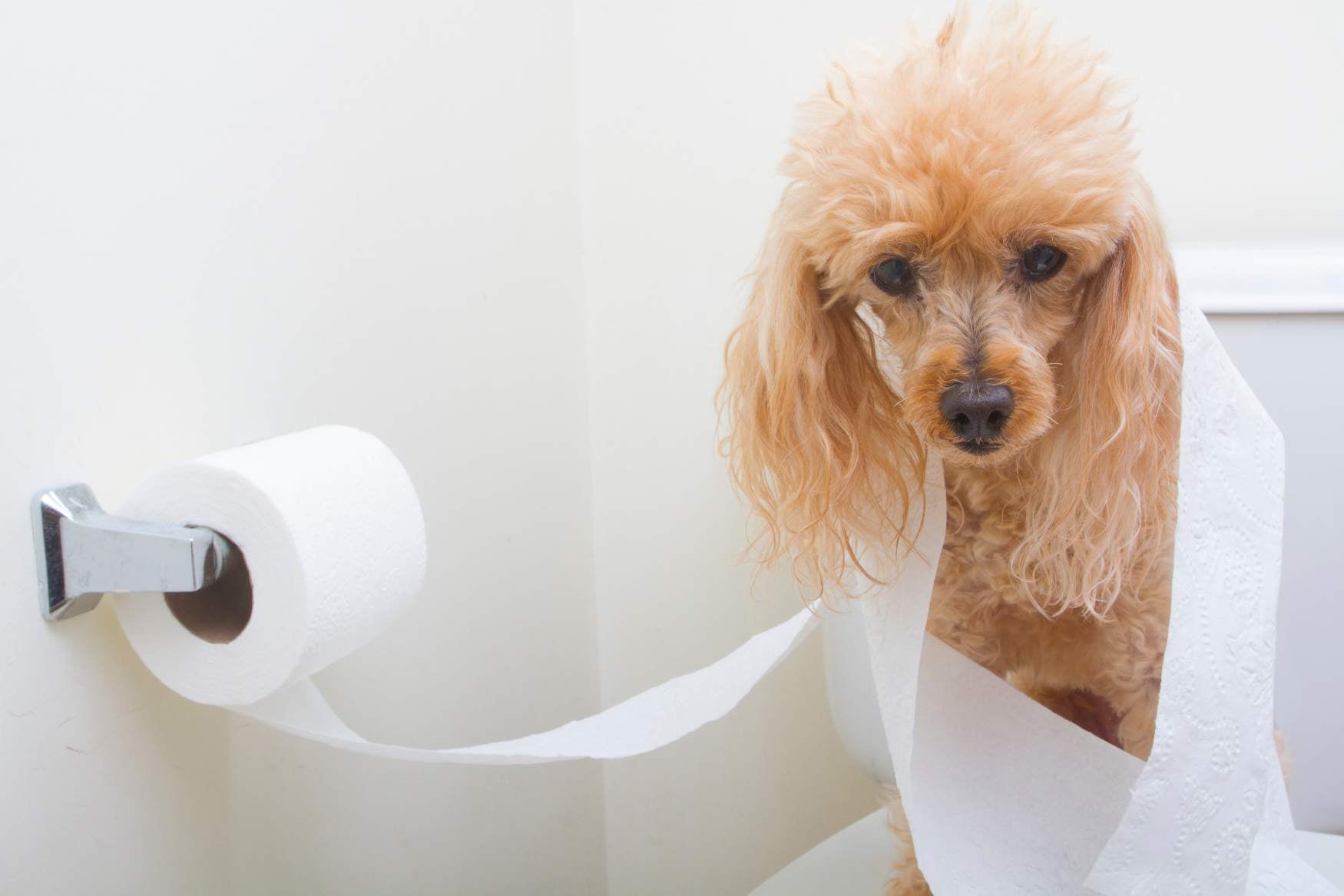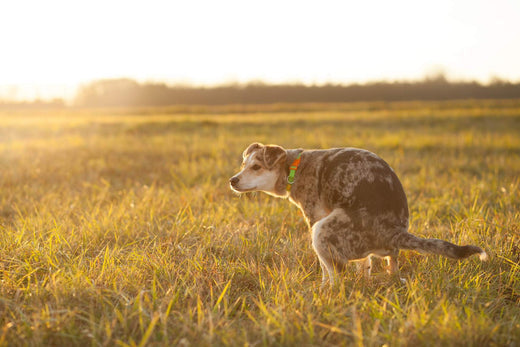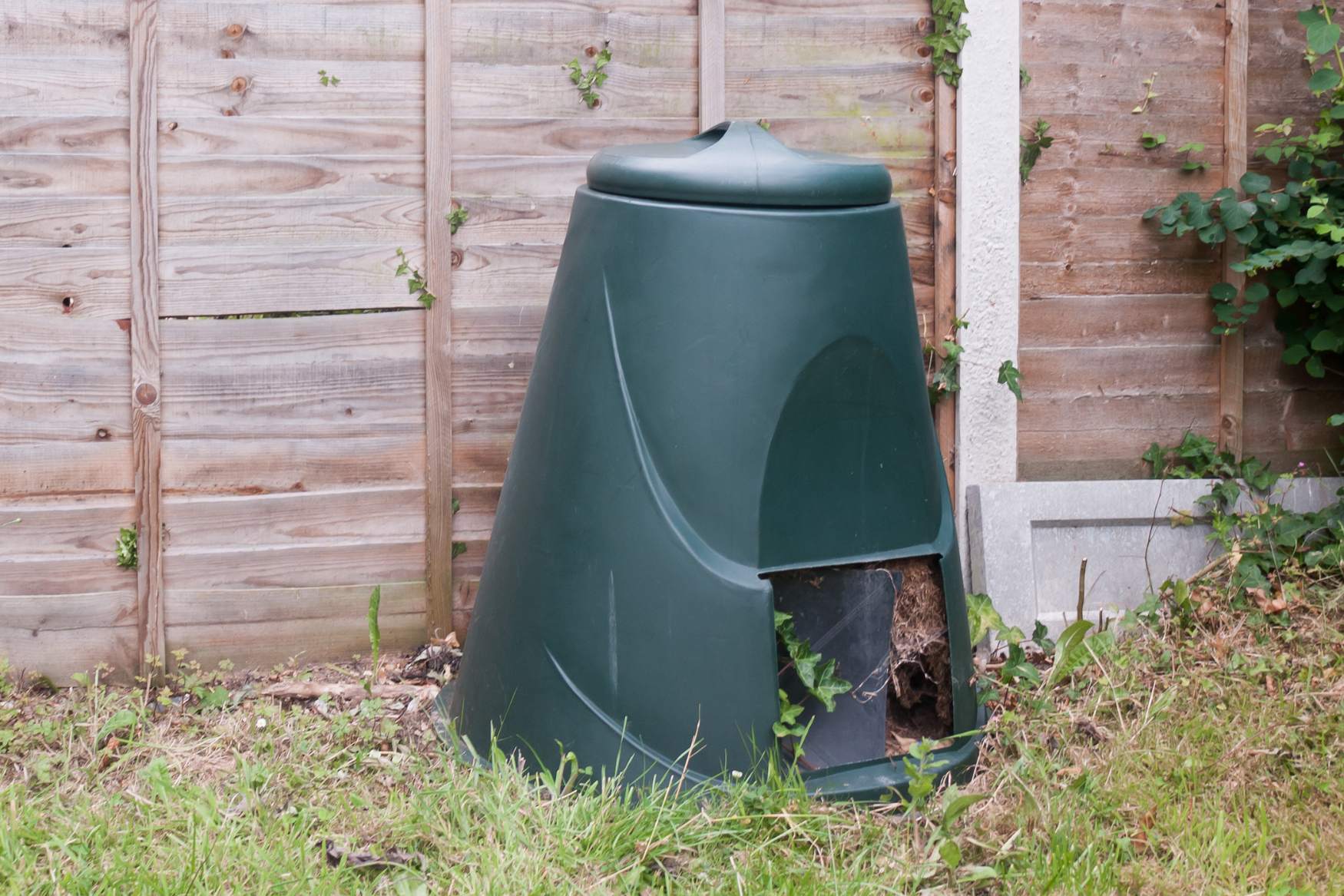1. Compostable poo bags are made from 100% plants – FALSE
There are no 100% plant-based compostable poo bags on the market.
Although many compostable poo bags are marketed as ''plant based'' - they only need to contain 20% plant-based material to meet certification requirements, with the rest made from fossil-fuel based materials.
Most compostable poo bags contain 50-80% "PBAT" (polybutylene adipate terephthalate), a biodegradable fossil fuel-based plastic.
2. Compostable poo bags will biodegrade in the natural environment – FALSE
Many studies have shown that compostable (and other biodegradable) plastics don’t breakdown in the open environment, e.g. soil, sea, air, and can remain intact for years before fragmenting into microplastics.
This is because they aren't designed to breakdown just anywhere, they are designed to biodegrade in very specific and tightly controlled environmental conditions of home or industrial compost.
These conditions cannot be replicated in the natural environment. However, new research now shows that up to 60% of 'home' compostable plastics don’t fully breakdown in home compost either!
3. Compostable plastic is less toxic than conventional plastic – FALSE
Studies now show they can be similarly toxic.
Furthermore, some compostable products (such as food packaging) are treated with per- and polyfluoroalkyl substances (also known as 'forever' chemicals because they never breakdown).
4. Compostable poo bags prevent plastic ending up in landfill, incineration, and the ocean – MISLEADING
Whilst they are often marketed this way, this obviously depends entirely on the end-user behaviour and disposal routes available.
In reality, due to a lack of public collection schemes and industrial composting facilities, only 3% of compostable plastic is thought to be fully composted.
When we surveyed dog owners, less than 5% composted their compostable poo bags at home.
To our knowledge, there are no industrial composting facilities that currently accept dog waste in the UK.
This is in line with other studies.
For example The Big Compost Experiment by University College London found that only 10% of people can effectively compost at home.
Furthermore, 83% of participants used their compost to grow edible plants, meaning it is unlikely people compost their dog's poo (and poo bags) because if they did, they couldn't use this compost for vegetables.
The researchers concluded that home composting is not at present a viable, effective or environmentally beneficial option for compostable plastic.
The bottom line: The majority of compostable poo bags go to landfill, incineration or the open environment (same as any other poo bag).
None get industrially composted and less than 10% get home composted.
5. Compostable poo bags will breakdown in landfill - MISLEADING
The environmental conditions of landfill are vastly different to that of a home or industrial compost.
For example, most landfills are devoid of oxygen and living microorganisms, which is critical for the biodegradation of compostable poo bags.
Therefore these poo bags may take years or even centuries to breakdown in landfill.
Instead, they have the added problem of producing methane in landfill, a highly potent greenhouse gas.
6. Compostable poo bags don't contribute to microplastic pollution – FALSE
The biodegradation of compostable poo bags requires very specific controlled conditions.
If left anywhere but a compost environment (e.g. the open environment), then they behave in a similar way to plastic and thus contribute to microplastics.
However even 'home' compostable plastics have been shown not to fully biodegrade in home compost!
Microplastics have also been found in the compost from some industrial composting facilities.
Indeed, many industrial composting plants do not want compostable plastics because they find that in reality, the majority don't biodegrade as claimed, especially PBAT and PLA - two common compostable plastics used for poo bags.
Little is known about biodegradable microplastics, but one study has showed that PBAT microplastic absorbs pollutants more strongly than conventional microplastic and may become a stronger vector of pollution and disease.
7. Compostable poo bags aren't plastic - FALSE
It's common for people to think that compostable poo bags are different to plastic, or even that they are not plastic at all.
However, this is not true.
The plants have been polymerised (i.e. chemically changed) to become plastic, and in many cases the final product is functionally and chemically the same as plastic.
If people believe they're not plastic in the sense that they aren't made from fossil fuels, this is also false, because most poo bags are made with 50-80% PBAT - a fossil-fuel derived biodegradable plastic.
Conclusion
The problem of dog poo doesn't begin and end with poo bags.
We have to consider the system in which we find them and consider their entire life cycle, from raw materials, to manufacturing to disposal.
We need to consider what happens in reality, vs what would be ideal in theory.
At present, we believe there is no perfect poo bag on the market - they all have their drawbacks and the problem will only be solved when we have the infrastructure to sustainably dispose of them.
Compostable poo bags are often marketed as being ‘eco-friendly’ but fail to mention a vital condition for this to be true – they must end up in the right environment i.e. compost.
If they end up elsewhere, they may be the same, or worse, than normal plastic.
Of course, if you're in the minority who is actually composting your poo bags, then by all means, keep using them (or even better, use re-usable poo bags - they do exist!)
But if you're disposing your poo bags in general waste - what's the answer?
It's simple: re-using waste that's already destined to go there!
We've proudly developed our innovative ReSEAcled Poo Bags, which provide environmental benefits regardless of whether they end up in landfill or incineration.
These are more sustainable than compostable or biodegradable poo bags at present. This is because the environmental benefits are gained during raw material selection, manufacturing and point of sale.
We have chosen sustainable materials that avoid many of the issues with plant-based plastic and their production requires less energy and produces less emissions.
They're also the world's first and only certified Plastic Negative poo bag.
This means that more plastic is REMOVED from our environment as a result of using the poo bags (5x more to be exact!).
References
https://surfrider.eu/wp-content/uploads/2020/07/fbi_bioplastic_en.pdf
https://op.europa.eu/en/publication-detail/-/publication/3fde3279-77af-11ea-a07e-01aa75ed71a1/language-en/format-PDF
Plastic Solutions review: Biodegradable and Compostable plastics: https://plasticsolutionsreview.com/biodegradable-and-compostable-plastics/
The Big Compost Experiment: Using citizen science to assess the impact and effectiveness of biodegradable and compostable plastics in UK home composting - https://discovery.ucl.ac.uk/id/eprint/10159613/
https://pubmed.ncbi.nlm.nih.gov/32951901/
, , , & (2018). COMPOSTABLE – How well does it predict the life cycle environmental impacts of packaging and food service ware? State of Oregon Department of Environmental Quality. https://www.oregon.gov/deq/FilterDocs/compostable.pdf
https://www.circularonline.co.uk/wp-content/uploads/2022/11/Big-compost-policy-briefing-November-2022-FINAL.pdf
Relevance of biodegradable and compostable consumer plastic products and packaging in a circular economy: https://acsess.onlinelibrary.wiley.com/doi/full/10.1002/jeq2.20450
Environmental impacts of conventional plastic and bio-based carrier bags: Part 2: End-of-life options: https://www.researchgate.net/profile/Hsien-Khoo/publication/283863855_Environmental_impacts_of_conventional_plastic_and_bio-based_carrier_bags_Part_2_End-of-life_options/links/59c4960ca6fdccc7190db727/Environmental-impacts-of-conventional-plastic-and-bio-based-carrier-bags-Part-2-End-of-life-options.pdf
https://bioplasticsnews.com/2020/06/22/compostable-plastics-industrial-composting-site/
https://pubmed.ncbi.nlm.nih.gov/30300808/















